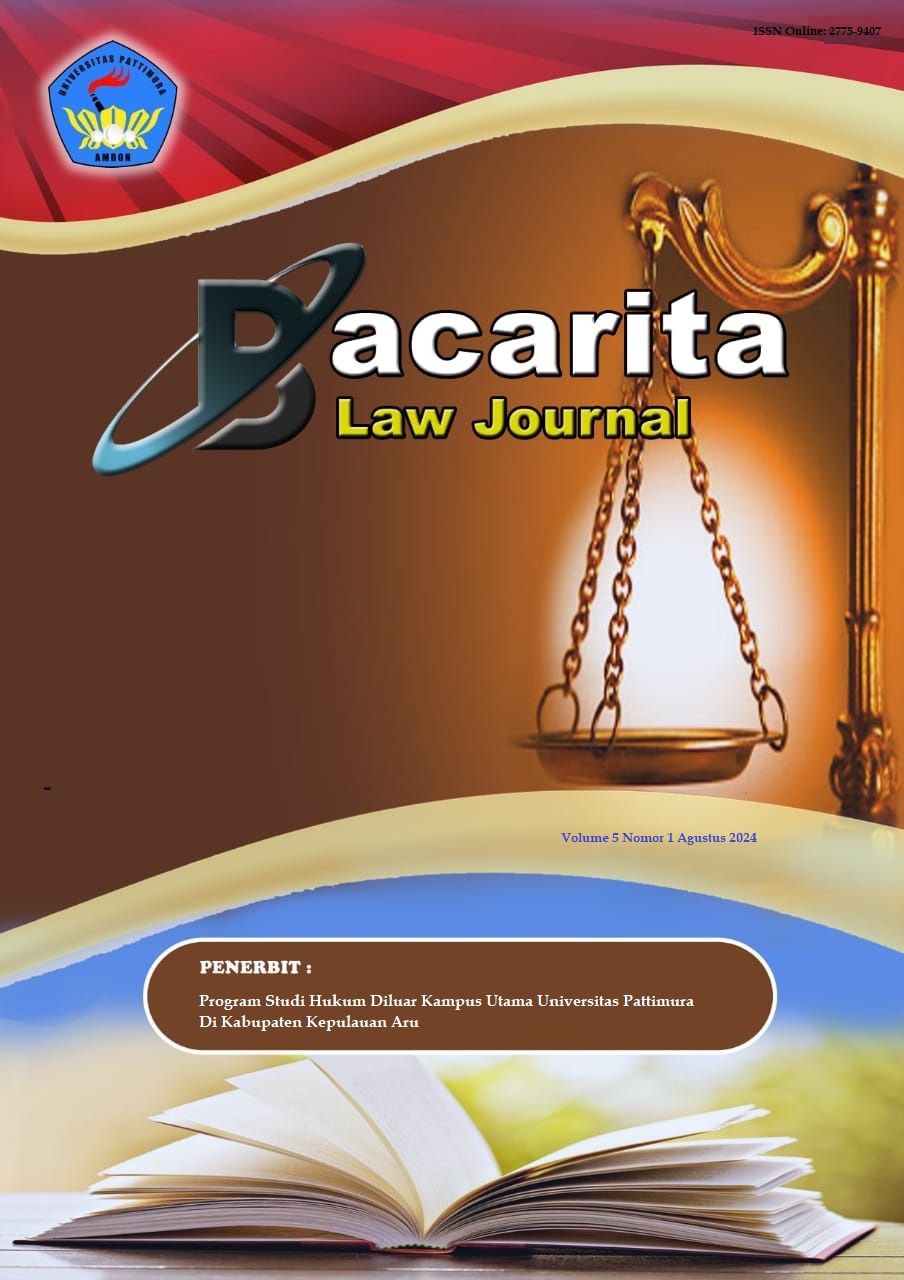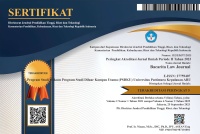Mitigasi Love Scamming: Penegakan dan Perlindungan Hukum Tindak Pidana Pemerasan Bermodus Cinta
Abstract
The development of technology and social media has significantly changed the way people communicate, including in searching for life partners. However, this advancement has also created opportunities for cybercrimes, one of which is love scamming, a form of extortion using romance as a pretext through online platforms. Law enforcement against perpetrators of this crime is more relevant when applied under Article 27B paragraph (1) in conjunction with Article 45 paragraph (8) and Article 29 in conjunction with Article 45B of Law Number 1 of 2024, which amends Law Number 11 of 2008 concerning Electronic Information and Transactions. Although the primary element of love scamming is extortion, many cases also involve threats, making it possible to apply multiple legal provisions under the Indonesian Penal Code and the Electronic Information and Transactions Law. Legal protection for victims is carried out through two approaches: preventive and repressive. Preventive protection involves raising public awareness through education and outreach regarding romance-based scams on social media, while repressive protection includes concrete actions by the government and private organizations to help victims obtain legal protection and restore their rights. Therefore, social media users must be more cautious when interacting online, be able to distinguish between real and fake accounts, and avoid trusting strangers too easily to prevent becoming victims of love scamming.
Downloads
References
Efendi Jonaedi, R.P, Metode Penelitian Hukum: Normatif dan Empiris, cetakan keenam, (Jakarta: Prenada Media, 2022).
Iftitah Maghfirah Haeruddin, “Pertanggungjawaban Pidana Pelaku Tindak Pidana Penipuan Di Aplikasi Kencan Tinder (Studi Kasus Putusan Nomor : 1280/Pid.B/2019/Pn.Jkt.Pst)” (Universitas Hasanuddin Makasar, 2021).
Lustia Wijayanti and Jawade Hafidz, “Penegakkan Hukum Pelaku Tindak Pidana Dengan Modus Penipuan Berkedok Cinta Di Dunia Maya (Scammer Cinta),” in Prosiding Konferensi Ilmiah Mahasiswa Unissula (Kimu) 3 (Semarang: Universitas Islam Sultan Agung, 2020).
Miza Nina Adlini, Anisya Hanifa Dinda, Sarah Yulinda, Octavia Chotimah, Sauda Julia Merliyana, “Metode Penelitian Kualitatif Studi Pustaka.” Edumaspul: Jurnal Pendidikan 6, no. 1 (2022).
Nindi Bimantari, Sekaring Ayumeida Kusnadi, and Fifin Dwi Purwaningtyas, “Perlindungan Hukum Bagi Korban Kejahatan Love Scam,” Jurnal Ilmu Hukum Wijaya Putra 1, no. 2 (2023): 173–88.
Philipus M Hadjon, Perlindungan Bagi Rakyat Di Indonesia, Cetakan Ke-3, Surabaya: Bina Ilmu, 1987.
R. Soesilo, Kitab Undang-Undang Hukum Pidana (KUHP) Serta Komentar-Komentarnya Lengkap Pasal Demi Pasal (Bogor: Politeia, n.d.).
S.R. Sianturi, Tindak Pidana Di KUHP Berikut Uraiannya (Jakarta: Alumni AHM-PTHM, 1983).
Yaoma Tertibi and Arum Ayu Lestari, “Kehebatan Scammer Love Dalam Mencari Korban Ditinjau Dari Aspek Hukum Dan Psikologi,” Jurnal Sianida 3, no. 3 (2023): 59–67.
Yuni Retno, “Love Scammer: Komodifikasi Cinta Dan Kesepian Di Dunia Maya,” Jurnal Komunikasi 12, no. 2 (2015): 65–77.
Copyright (c) 2025 Dika Anggara Putra, Dian Rosita

This work is licensed under a Creative Commons Attribution-NonCommercial 4.0 International License.
Authors who publish their manuscripts in this Journal agree to the following conditions:
- The copyright in each article belongs to the author, as well as the right to patent.
- Authors are able to enter into separate, additional contractual arrangements for the non-exclusive distribution of the journal's published version of the work (e.g., post it to an institutional repository or publish it in a book), with an acknowledgment of its initial publication in this journal.
- Authors are permitted and encouraged to post their work online (e.g., in institutional repositories or on their website) prior to and during the submission process, as it can lead to productive exchanges, as well as earlier and greater citation of published work.
- Authors have the right to self-archiving of the article (Author Self-Archiving Policy)















